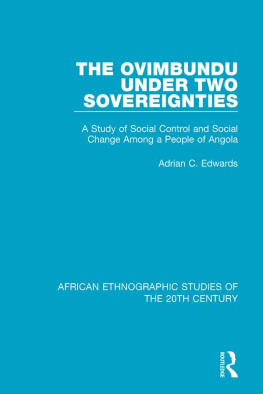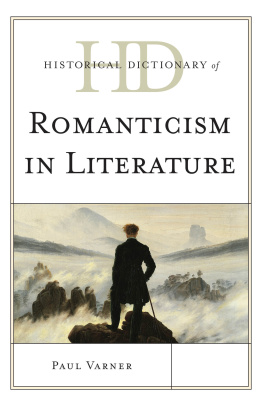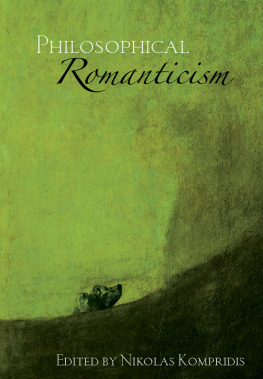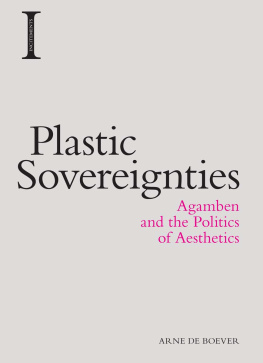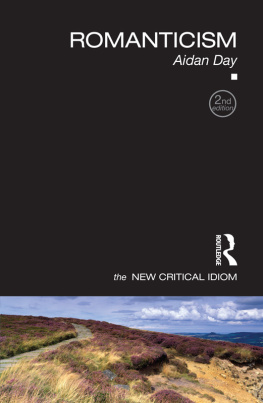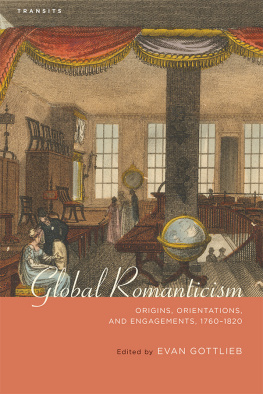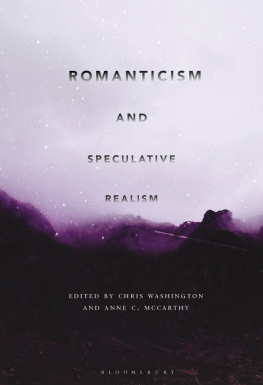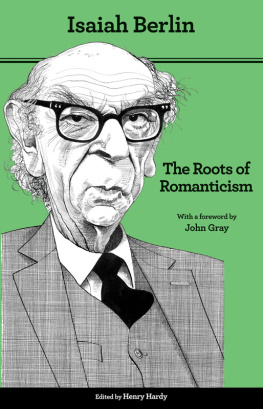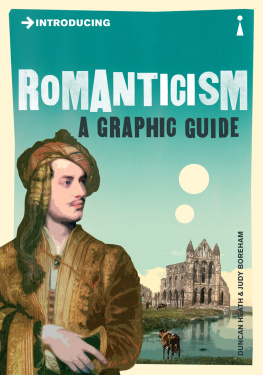Kuiken - Imagined Sovereignties: Toward a New Political Romanticism
Here you can read online Kuiken - Imagined Sovereignties: Toward a New Political Romanticism full text of the book (entire story) in english for free. Download pdf and epub, get meaning, cover and reviews about this ebook. City: Oxford, year: 2014, publisher: Fordham University Press;Oxford University Press, USA, genre: Religion. Description of the work, (preface) as well as reviews are available. Best literature library LitArk.com created for fans of good reading and offers a wide selection of genres:
Romance novel
Science fiction
Adventure
Detective
Science
History
Home and family
Prose
Art
Politics
Computer
Non-fiction
Religion
Business
Children
Humor
Choose a favorite category and find really read worthwhile books. Enjoy immersion in the world of imagination, feel the emotions of the characters or learn something new for yourself, make an fascinating discovery.

Imagined Sovereignties: Toward a New Political Romanticism: summary, description and annotation
We offer to read an annotation, description, summary or preface (depends on what the author of the book "Imagined Sovereignties: Toward a New Political Romanticism" wrote himself). If you haven't found the necessary information about the book — write in the comments, we will try to find it.
Kuiken: author's other books
Who wrote Imagined Sovereignties: Toward a New Political Romanticism? Find out the surname, the name of the author of the book and a list of all author's works by series.
Imagined Sovereignties: Toward a New Political Romanticism — read online for free the complete book (whole text) full work
Below is the text of the book, divided by pages. System saving the place of the last page read, allows you to conveniently read the book "Imagined Sovereignties: Toward a New Political Romanticism" online for free, without having to search again every time where you left off. Put a bookmark, and you can go to the page where you finished reading at any time.
Font size:
Interval:
Bookmark:
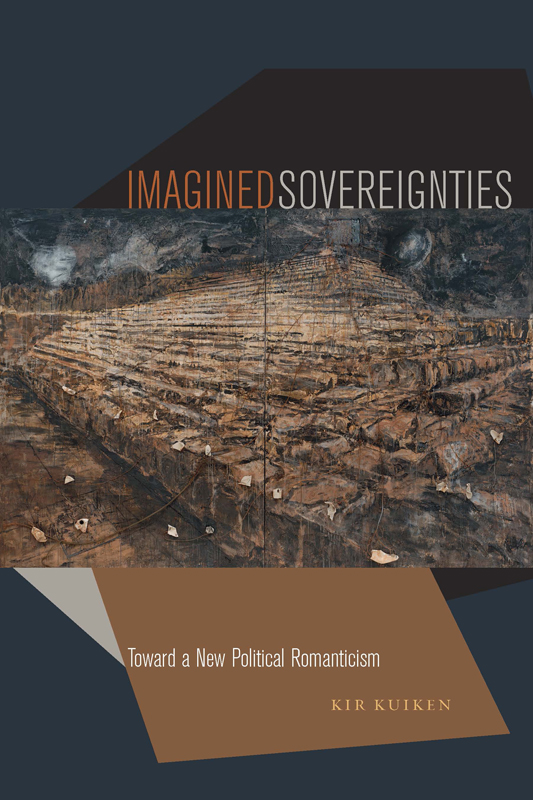
Imagined Sovereignties

Copyright 2014 Fordham University Press
All rights reserved. No part of this publication may be reproduced, stored in a retrieval system, or transmitted in any form or by any meanselectronic, mechanical, photocopy, recording, or any otherexcept for brief quotations in printed reviews, without the prior permission of the publisher.
Fordham University Press has no responsibility for the persistence or accuracy of URLs for external or third-party Internet websites referred to in this publication and does not guarantee that any content on such websites is, or will remain, accurate or appropriate.
Fordham University Press also publishes its books in a variety of electronic formats. Some content that appears in print may not be available in electronic books.
Library of Congress Cataloging-in-Publication Data is available from the publisher.
Printed in the United States of America
16 15 14 5 4 3 2 1
First edition
For my parents, Donald and Elisabeth
CONTENTS
The impetus for this book began during my time in graduate school at the University of California, Irvines Department of English and Comparative Literature. The seminars of Jacques Derrida provided an extremely challenging and fertile intellectual environment. Derridas work and teaching has made an indelible mark on my thinking and writing. The research for this book began under the direction of Andrzej Warminski, who taught me how to read. Before him, Zsuzsa Baross at Trent University taught me how to think.
Friends and colleagues Branka Arsi, Rick Barney, Craig Carson, Jennifer Greiman, Paul Stasi, and David Wills all read my work at various stages and helped immeasurably with timely, thoughtful, and insightful suggestions. I am also strongly indebted to the conversations I have had with my colleagues Geoffrey Bennington, Pascale-Anne Brault, Michael Naas, Peggy Kamuf, and Elizabeth Rottenberg at the annual Derrida Seminars Translation Project.
The English Department at the University at Albany has provided me with nothing short of an intellectual community, and I owe a debt of gratitude to all of my colleagues. Mike Hill and Randy Craig as chairs have provided steadfast support throughout the writing process. Rick Barney, Helen Elam, and Charles Shepherdson have been a guiding presence as my faculty mentors. Liz Lauenstein, Lynn Beaurup, and Connie Barrett helped navigate the ins and outs of acquiring institutional support. I am grateful to the talented and hardworking group of graduate students in my Fall 2009 and Spring 2011 graduate seminars, whose engagement with some of the ideas in this book helped shape it. I am also thankful to be part of a community that is at once intellectual and social. For conversation, laughter, food, and drink I would like to thank Bret Benjamin, Donald Byrd, Pat Chu, James Lilley, Ineke Murakami, Toms Noel, Helene Scheck, Ed Schwarzschild, Barry Trachtenberg, and Laura Wilder.
The University at Albany, State University at New York provided research support. I was able to complete the majority of the work on the manuscript thanks to a fall 2011 writing leave granted by the University at Albany English Department.
I would also like to express my deep appreciation for the tireless work of the entire team at Fordham University Press. Helen Tartar has been extremely supportive of the project, not only in taking time out of her busy schedule to meet with me but also in graciously and patiently seeing the process through to the end. Thomas Lay facilitated the whole process with similar care and attention. I would like to thank both Eric Newman and Erin Schwiderson for their incredibly diligent editing work. The book also owes much to the two readers Helen asked to review the manuscript. I am especially grateful to Jan Plug, whose extremely detailed and incisive comments helped to clarify a number of important points. A portion of was published in Literature Compass 8.2 (2011) as Shelleys Mask of Anarchy and the Problem of Modern Sovereignty. I would like to thank the Trustees of the British Museum for granting permission to use several plates of Blakes Illuminated manuscripts and Anselm Kiefer for permission to use his work Osiris und Isis for the cover of the book.
More personally, I have two families to thank. My parents, Donald and Elisabeth Kuiken, have supported me in every possible way, first by giving me a love of reading and writing, and then by helping to provide me with the means to turn it into a career. Their love and care at every step of the way has been unconditional. I owe them both a great deal more than can be expressed in these pages.
My other family consists of Branka Arsi, David Wills, and Emma Arsi-Wills. All along, they have been a refuge and a source of uncompromising moral and intellectual support. I thank them for their friendship and for raising Emma, a constant source of joy whenever I see her.
My wife and best friend, Vesna, has been an engaged and patient interlocutor for the entire time I was writing this book. I owe her boundless love for the beauty of a shared life.
Imagined Sovereignties
Among the great popular stories that followed Percy Shelley, or Mad Shelley as he came to be called after being expelled from Oxford for writing the Necessity of Atheism , was that while travelling with Byron in Switzerland, he would sometimes sign the hotel ledger under the name Percy Shelley, democrat, great lover of mankind, atheist. Less fantastical than the tale about Edward Trelawny pulling Shelleys intact heart from his funeral pyre, it nonetheless conveys a familiar nexus of Romantic themes that connect immediately to the problem of politics. With the exception of the last descriptoratheistShelleys signature could be read as the signature of British Romanticism more generally. Emerging coextensively with the great revolutions of the period that called divine right models of political sovereignty directly and violently into question, Romanticism sits at the crossroads of the modern era, which is forced to confront the task of reconstituting the political on new grounds. Shelleys triple signature, democrat, great lover of mankind, atheist, opens a set of problems that would confront this modernity, along with all the aporias of the process of secularization that we are still familiar with today. These aporias produce a set of intractable questions: How does one construct a sovereignty no longer modeled on absolute divinity? Is there a conflicted relationship between secularized models of sovereignty and democracy? Does the substitution of Man for God as sovereign diminish in any way the threat of absolutism found in secularized conceptions of political theology? These fundamental paradoxes remain central to the mutation of the concept of sovereignty that Romanticism witnessed, and in which it also participated. It remains part of the prehistory of our own modernity, which is in the throes of its own specific crises and transformations of this concept.
Though readers of Romanticism have long understood that the revolutions of the period were fundamentally intertwined with it, exactly how remains an ongoing source of debate. Coleridges early poem Destruction of the Bastille may serve as a good example of the lacuna within Romanticisms relation to the transformations in sovereignty that the revolution represents. The first stanza of the poem depicts freedom emerging as a volcano, spreading its ruins, while the last witnesses liberty succeed, flowing through every pulse and vein. Since the middle stanzas are missing, it remains unclear how we get from the beginning to the end of the story. One could argue, however, that these missing stanzas have been filled with meaning by a growing critical literature that has sought to understand Romanticism in terms of its alleged indifference or naivet in relation to politics. The last decade has witnessed a veritable explosion in studies devoted to the philosophical and political meaning of Romanticism. Having long ago surpassed the notion of Romanticism as a visionary company Its legacies multiple and contested, Romanticism remains either a moment that still determines our conceptions of literature and criticism, or a dangerous contemporary mystification that must be critically cast off.
Font size:
Interval:
Bookmark:
Similar books «Imagined Sovereignties: Toward a New Political Romanticism»
Look at similar books to Imagined Sovereignties: Toward a New Political Romanticism. We have selected literature similar in name and meaning in the hope of providing readers with more options to find new, interesting, not yet read works.
Discussion, reviews of the book Imagined Sovereignties: Toward a New Political Romanticism and just readers' own opinions. Leave your comments, write what you think about the work, its meaning or the main characters. Specify what exactly you liked and what you didn't like, and why you think so.

